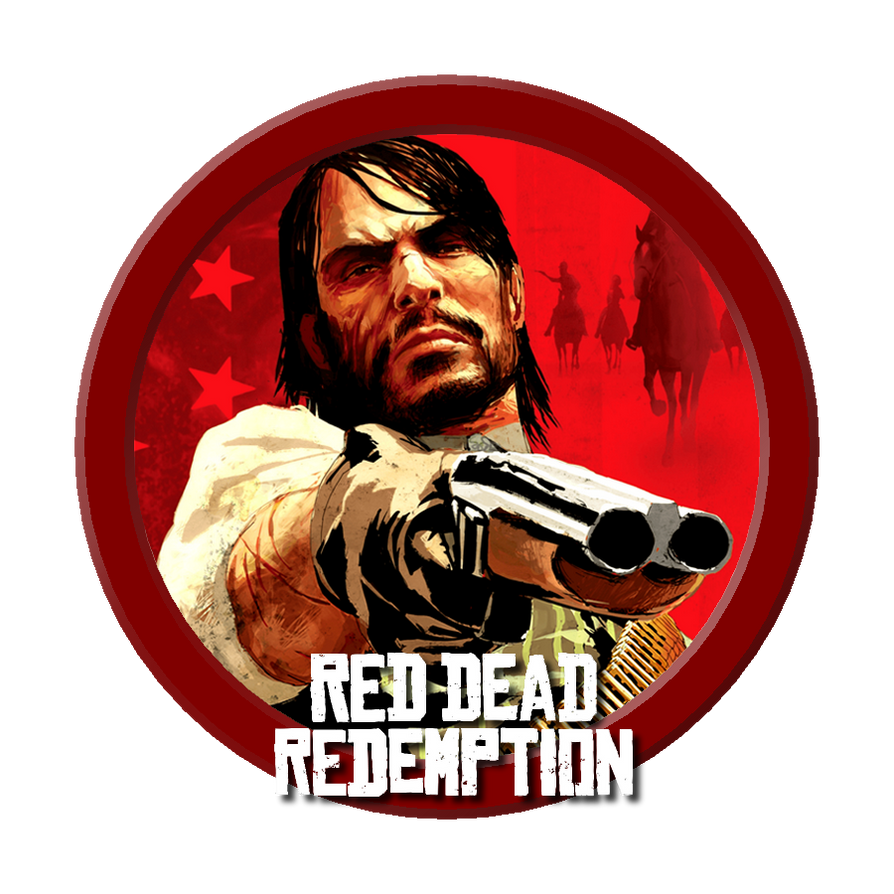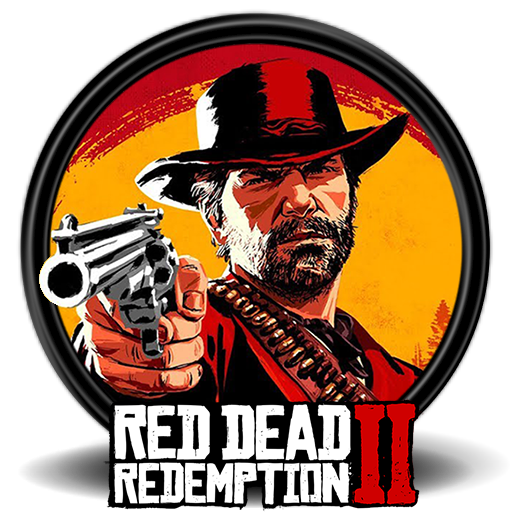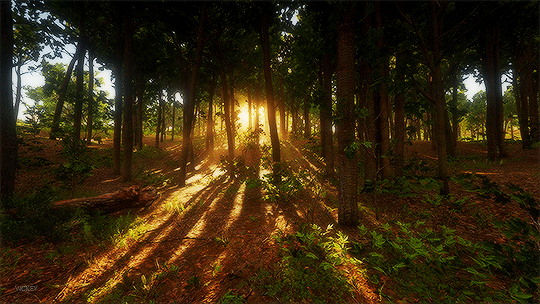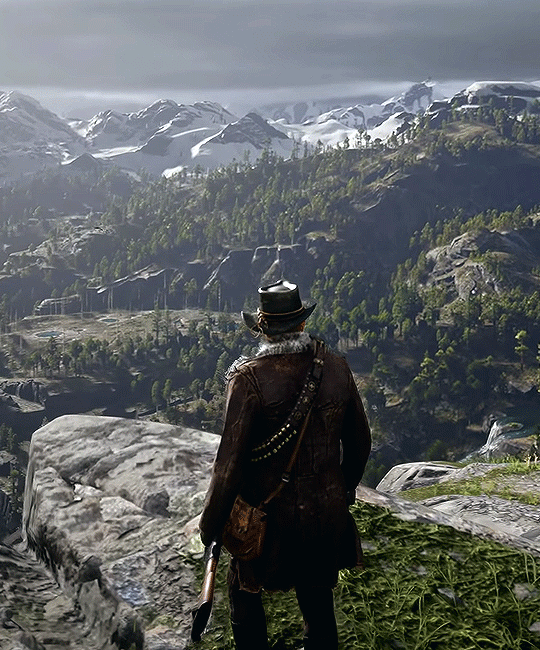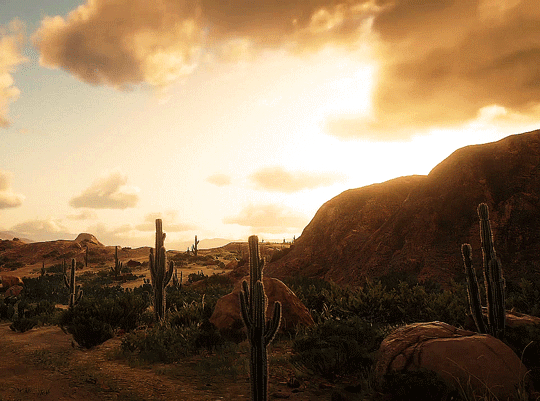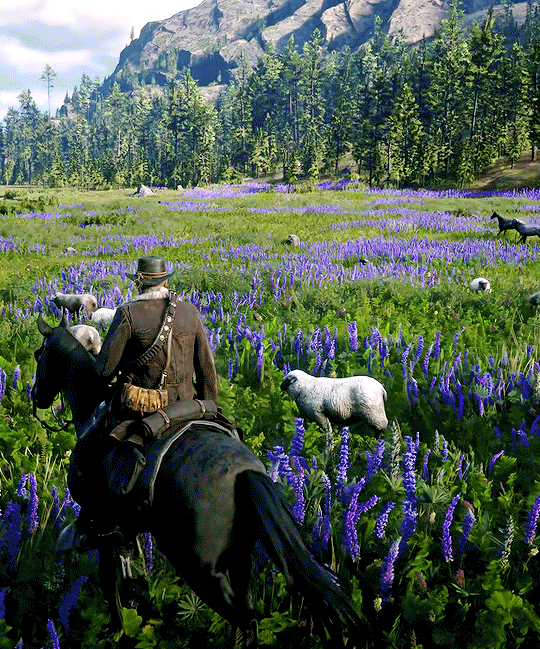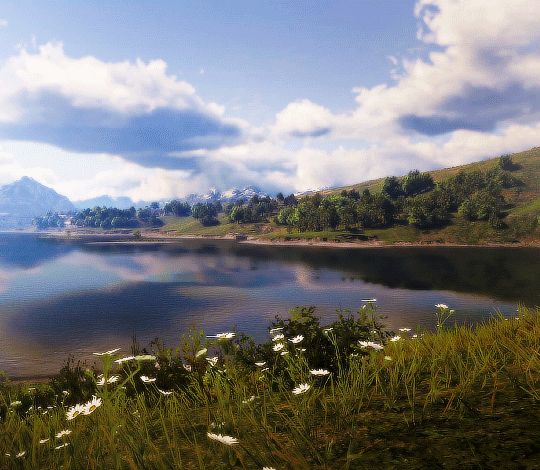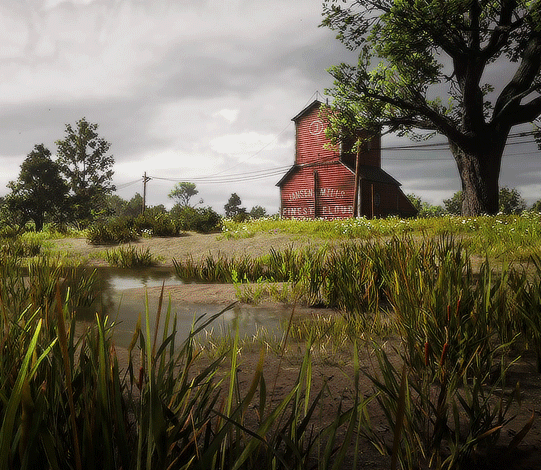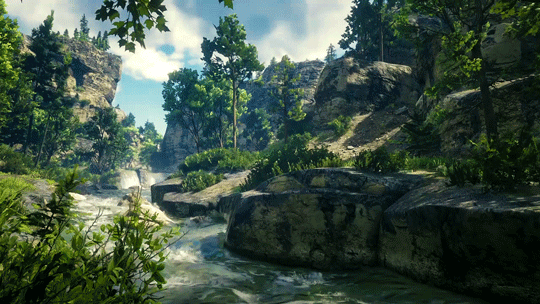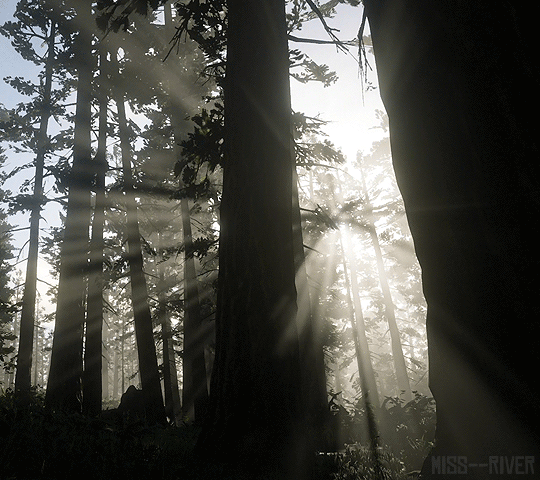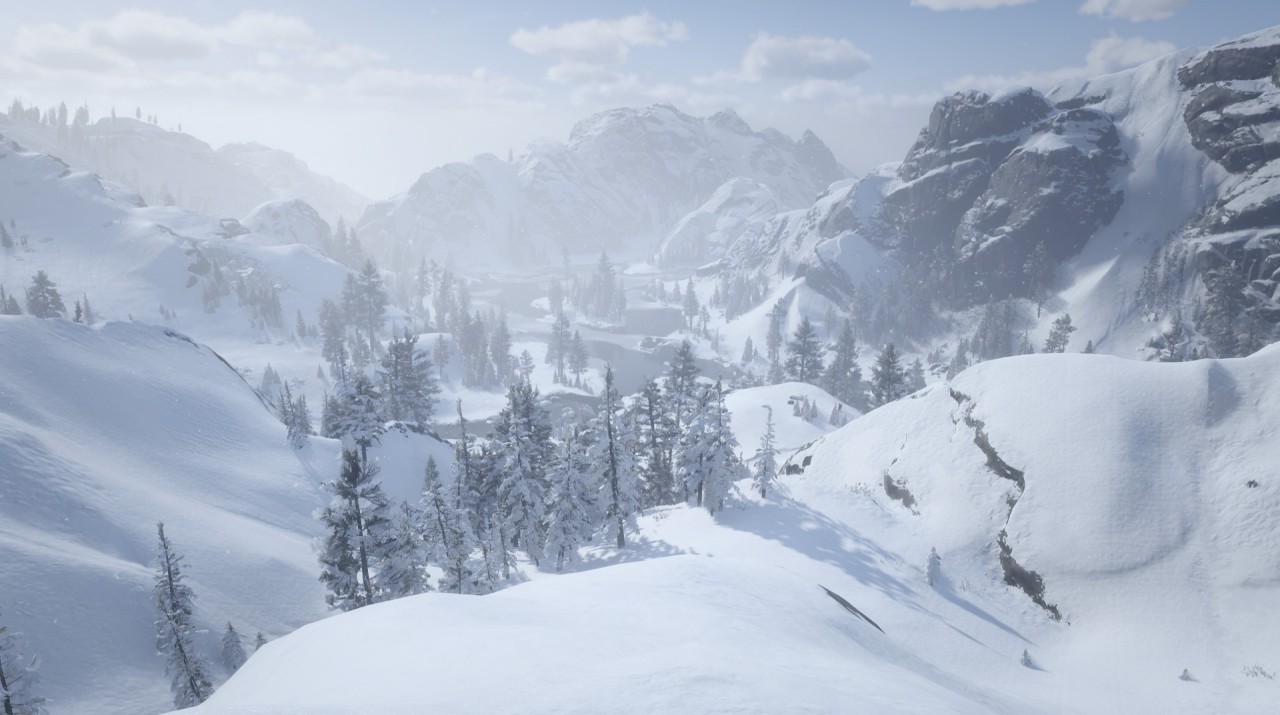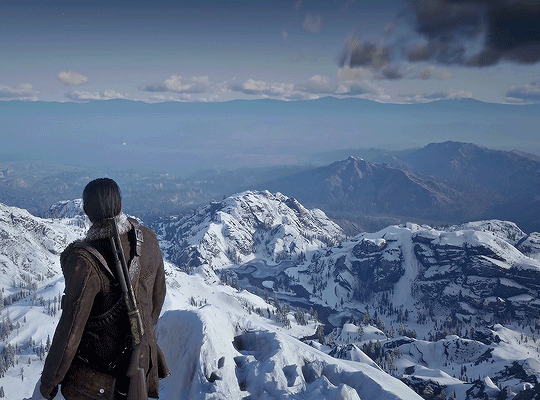HI! This page is a heavy work in progress! Come back soon!!
About
Red Dead Redemption 2, released in 2018, is the narrative prequel to Red Dead Redemption, released in 2010. The game spent 17 years in development under Rockstar Games. At the time, it made waves for its excellent visuals, interactivity, environmental details, character acting, and incredible narrative. Several years since its release, it still holds up as one of the best triple-A video games ever released.
Gameplay
The game's actual content is estimated between sixty to a hundred hours of gameplay, during which you can watch brilliantly executed cuscenes featuring performance capture and graphic clarity heretofore unrivalled in the video game industry. Or, you can jump right into the bang-bang-shoot gameplay Rockstar Games is known for, heedless of the high drama that propels it as you pursue wealth and hyperviolence. You can also simply take your time to study each and every plant and animal, bond with your horse (or, horses), meet intriguing and entertaining strangers, or participate in one of the most in-depth fishing mechanics ever made for a game ostensibly NOT about fishing. And I haven't even TOUCHED the clothing and hair customization systems yet. The real kicker is, most people do a little of all of this. There's no RIGHT way to play this game. Each and every detail is so well thought out, each contingency accounted for, it feels like you can actually do anything in this game. There's an honor system implemented into rdr2 where each action you take will either put you into the shoes of a good-hearted but misguided outlaw trying to save his family and redeem himself for his checkered past, or a man so convinced of his own evil there's no other way he knows how to interact with the world outside of violence. There's so much nuance in everything about this game that it's managed to keep me riveted after over 5,000 hours and (at time of writing) seven years. I STILL haven't gotten all the story mode achievements for my ps4 version.
All of this is NOT to say that you should be intimidated; far from it. Red Dead 2's introduction to its world doesn't hold your hand, but features are introduced organically in the gameplay itself, so when you saddle up and head into the world outside of story missions, you're already well equipped to handle it.
Story
Its narrative is divided into six chapters and an epilogue, with the opening chapter working to orient you in the world, and introducing you to playing the role of Arthur Morgan, the "enforcer" in the Van der Linde gang. The game opens in a howling blizzard, into which the gang has fled from the law after a heist gone wrong. We don't get many details except the group is composed of a surprising hodgepodge of misfits, including women and a child. Everyone is struggling to survive, and as you progress, you learn to ride your horse through waist-high snow to meet up with your other gang members and find shelter. You learn bits and pieces here through conversations on horseback, the chapter progressing slowly as you rescue a newly widowed woman, Sadie Adler, from a rival gang, go hunting with a mixed race native/black man, Charles Smith, and make plans to rob said rival gang before departing from the harsh snowy mountain. The chapter is one long tutorial that serves the dual purpose of introducing you to the game's controls and features as well as the context that the rest of the narrative is about to unfold from. Chapter one ends in a train heist and the gang's exodus from the mountains in its wake.
Chapter two begins immediately after, with the gorgeous scenery passing slowly by as the gang members hold conversation with each other in a way that feels so naturalistic as to make you forget you're playing a game in the first place. Arthur and his fellow gang members establish their new hideout camp at Horseshoe Overlook, a plateu with a sprawling view of the Dakota river valley below. It's when this chapter begins that the game really hands you the reins. You can explore camp, interact with everyone, craft tonics and ammo at a campfire, jump immediately into a few story focused missions, or saddle up and leave as soon as you like.
I'm not going to go too far into the plot, but Red Dead's story is a notoriously heart-wrenching tragedy interspersed with moments of genuine thrills, laughs, and awe that are difficult to explain without seeing for yourself. It's a meditation on mortality, the ephemeral nature of life, and the hole you leave in other people when you're gone. Over the course of your game, you're with Arthur for every moment, you watch him as the story changes who he is, forces him to confront the things he's done and the things he's going to do, and you watch him decide to choose love and kindness over loyalty. You watch this man as he gets news that changes his perspective on EVERYTHING, and no matter your playstyle, his story only has one end. (Metaphorically. The game has four slightly different endings.)
And that's really the heart of the story right there; the end. As soon as you get that news, you know how this ends. The moments in between, your adventures lose their lightheartedness and whimsy and the tone shifts to a deep melancholy and existential introspection. You can choose to let Arthur extend the hand of mercy and help the people you encounter, trying to ease the weight of his past sins, or you can choose to save the effort and focus on helping Arthur and the few in his inner circle. You can decide if he takes that news of his imminent death and makes the last of his days worth it, or if he's going to keep going as he is until the very end, a victim of the same violence that he enacted on an innocent stranger.
Characters
Red Dead's gut-punch narrative wouldn't be possible without its absolutely incredible character acting. The "main" cast of characters in Red Dead Redemption II is pretty large compared to Red Dead Redemption, where we only had John Marston and his family along with various side characters. For rdr2, we've got an entire camp's worth of NPCs to interact with and get to know more about on a daily basis; about twenty in total, plus a comprehensive list of plot-important side characters that show up a few times. Protagonist and player character Arthur Morgan, played by Roger Clark, is the obvious standout amongst all of them.
Arthur Morgan
Roger Clark's performance as Arthur had to walk a fine line for such a massive title; his personality had to be expressive and distinct enough to be believable as his own character within the narrative, but fluid enough to allow for player autonomy in decisions that account for honor level. In the end, I think the writers and developers managed to pull off the honor system and its interplay with Arthur's personality almost flawlessly. Regardless of playstyle, Arthur Morgan FEELS like Arthur Morgan; sarcastic, rough-and-tumble, loyal to a fault, but with an intriguingly low sense of self worth. His journal also offers a fascinating glimpse into his inner thoughts; reading through it as you progress in the game, you can see his internal conflicts about the people around him, the decisions he has no choice but to work with, his past romance, his deep regrets, and his wavering loyalty to his father figure/mentor Dutch Van der Linde. With his health failing, it's all he can do to mitigate the damage that the gang does and try and hold fast to everything that's rapidly slipping through his fingers.At risk of sounding like a broken record, his character arc over the course of the story hits so hard as a meditation on the impact of your actions on the people around you. There's a scene near the end where he confides in a nun, Sister Calderon, about how he's doing. It's one of the only times he verbally acknowledges his condition, and the way his voice breaks over the two simple words
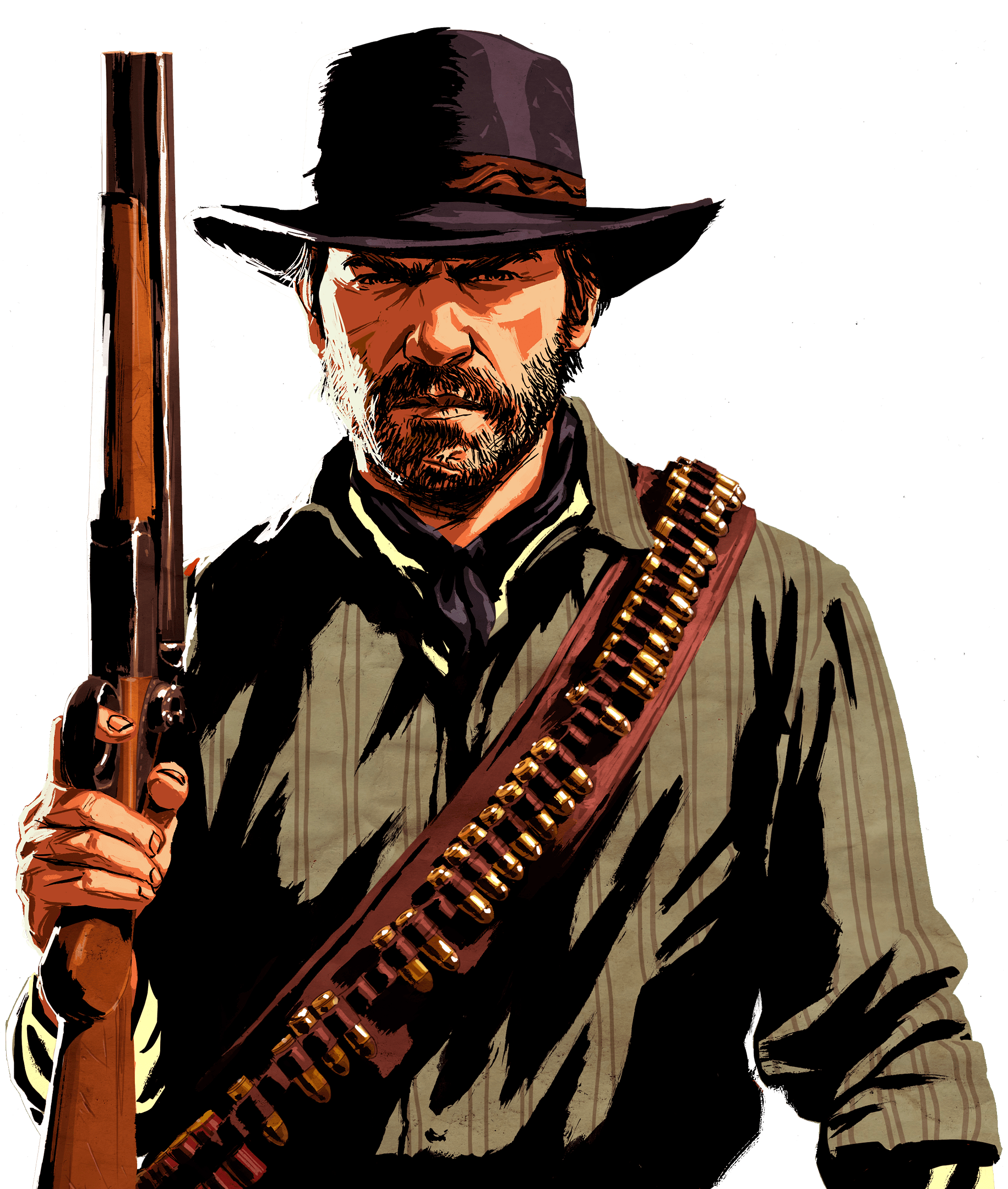 "I'm afraid" had me and countless others shedding some tears. It's her response that's one of the most memorable in the game. She says, "Take a gamble that love exists, and do a loving act". In a high honor run (which I consider more "canon"), he takes her advice to heart. He starts forgiving debt collections despite Dutch's insistance of profit over people. He helps strangers. He stops robbing innocents. He starts helping out the fictional native tribe, the Wapiti, when they're in trouble. He forges closer bonds with his friends and his brother. He uses the last of his strength to make sure as many members of the gang get out alive as he can. He saves John and his family. Most of those people get to live another day because Arthur took a gamble that love exists. Fuck. It's been seven years and I still tear up about it.
"I'm afraid" had me and countless others shedding some tears. It's her response that's one of the most memorable in the game. She says, "Take a gamble that love exists, and do a loving act". In a high honor run (which I consider more "canon"), he takes her advice to heart. He starts forgiving debt collections despite Dutch's insistance of profit over people. He helps strangers. He stops robbing innocents. He starts helping out the fictional native tribe, the Wapiti, when they're in trouble. He forges closer bonds with his friends and his brother. He uses the last of his strength to make sure as many members of the gang get out alive as he can. He saves John and his family. Most of those people get to live another day because Arthur took a gamble that love exists. Fuck. It's been seven years and I still tear up about it.
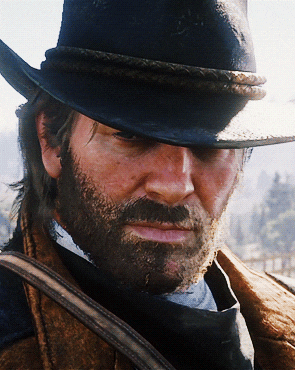
"Ah whatever :\"
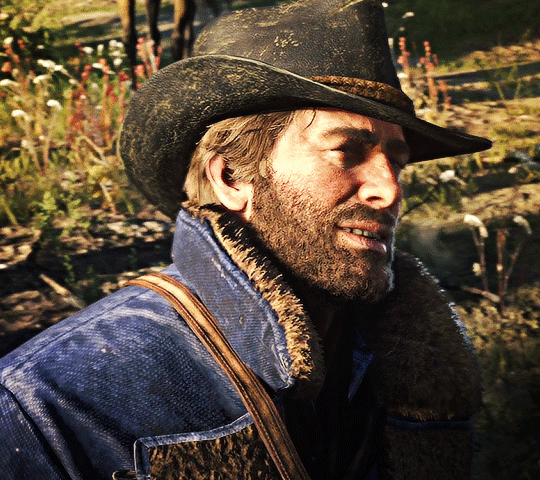
"Ah whatever :)"
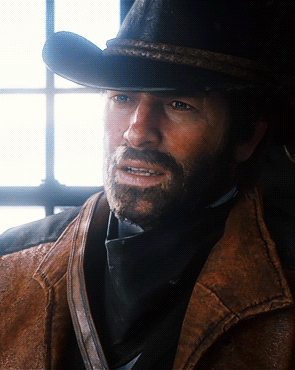
Arthur jawin' off
Dutch Van der Linde
Dutch is (arguably) the antagonist of rdr2, played by the fantastic Benjamin Byron Davis. As leader of our rag-tag gang of outlaws, his actions and his decisions are what drive the story forward before it even begins properly. As the story opens, you get glimpses of the charismatic and ambitious leader he can be, and you gain a real appreciation for the way the gang members respect him as a paragon of righteousness and wisdom. It's also plainly obvious how fondly he's regarded by Arthur, having established early on that Dutch had taken him in at a young age, taught him to read, and set him on the path he walks today. But mission by mission and decision by decision, you begin to see his character eroding, his choices becoming less tethered in reality, his need for MORE beginning to consume him and everyone he loves. You, as Arthur Morgan, can only helplessly watch on and try to mitigate the damage that he inflicts in the name of... Freedom? Righteousness? Ego? Dutch Van der Linde, by the end of the game, really HAS no driving motivation besides a relentless need to "prove" himself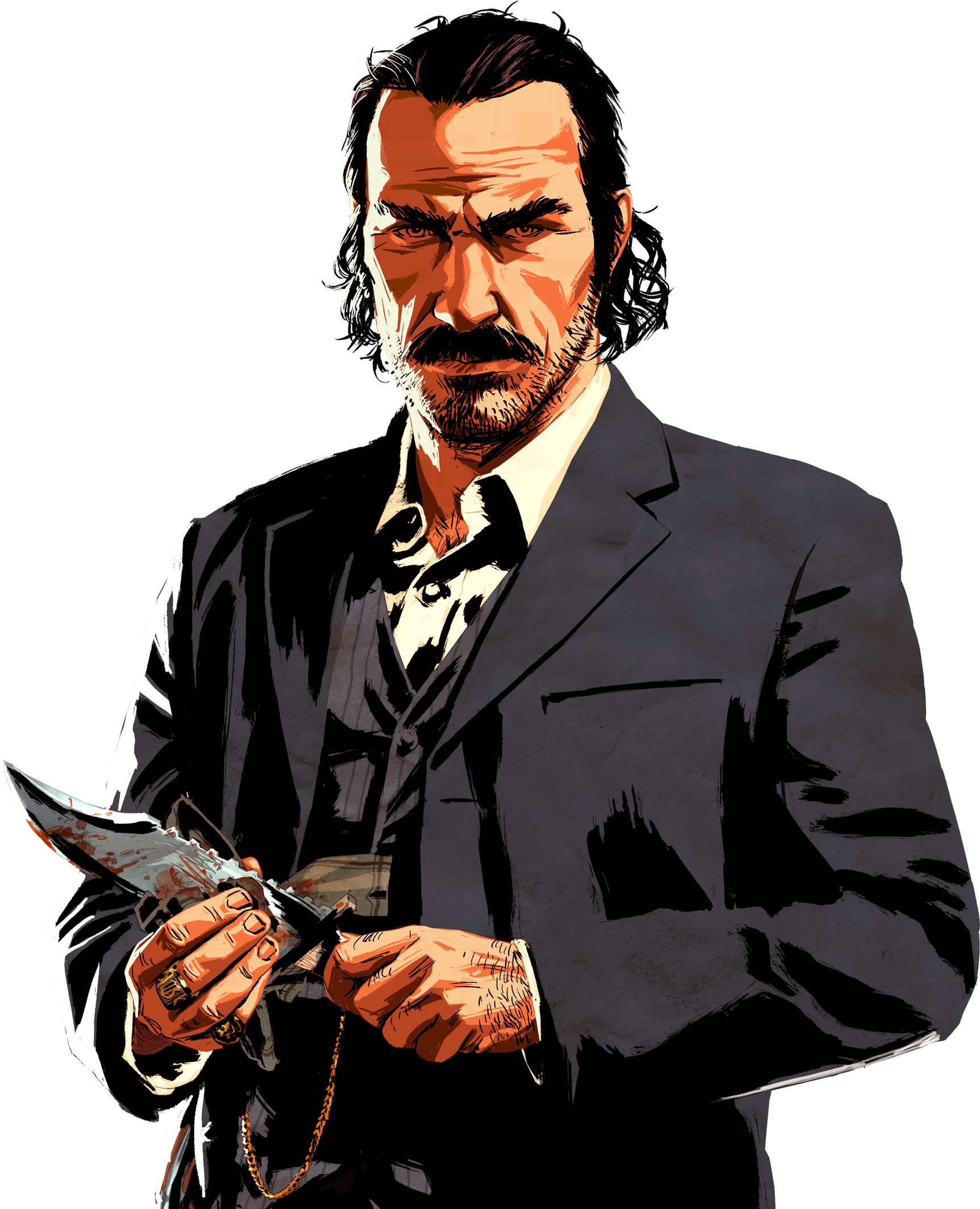 as he feels everything slipping away from him. No matter who he puts in harm's way, no matter how much innocent blood is on his hands, he's fundamentally unable to see that what he's doing is wrong. His ego is fuelled by fear. Midway through the game, Arthur, his son and his right hand man, begins to wither away before his eyes, and he can't bring himself to look. To look is to admit defeat. So he doesn't. He turns away from his son, time and time again, until he leaves him for dead one last time; unable even then to admit his own failures.
as he feels everything slipping away from him. No matter who he puts in harm's way, no matter how much innocent blood is on his hands, he's fundamentally unable to see that what he's doing is wrong. His ego is fuelled by fear. Midway through the game, Arthur, his son and his right hand man, begins to wither away before his eyes, and he can't bring himself to look. To look is to admit defeat. So he doesn't. He turns away from his son, time and time again, until he leaves him for dead one last time; unable even then to admit his own failures.
Obviously, this is a character I've spent a long time having complicated feelings about. He's like a narcissistic mother to me. I could honestly go on about individual facets of his character but I'm trying to keep these short-ish. Dutch Van der Linde is one of the most compelling and upsettingly realistic characters I've ever had the privilege to witness on screen.
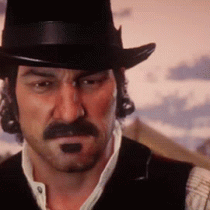 Angrey >:(
Angrey >:(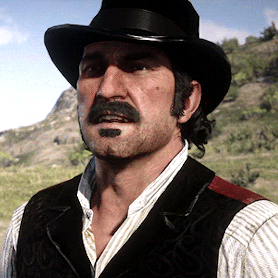 He had a PLAN.
He had a PLAN.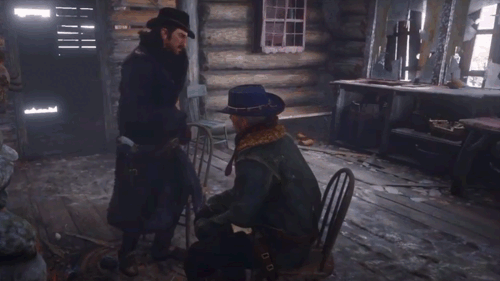 A good friend?
A good friend?Sadie Adler
Sadie Adler, played by Alex McKenna, is a character introduced to the gang at the start of the game as a woman newly widowed and consumed by grief and trauma. Throughout the course of the game, she goes from a despondant woman beaten by her circumstances to someone who wants to do right by the gang who saved her, an active member of the gang and the writer of her own story. She can be seen in the background of chapter 3 helping the camp cook, Pearson, with his duties, but she soon makes it absolutely clear that she won't be forced into domestic labor like many of the other women in camp. Testing her mettle with Arthur against a rival gang, the Lemoyne Raiders, Arthur and the player gain a new respect for her skill with a gun and her burning hatred of her enemies. Her fury really is her defining characteristic in the time after chapter 2; she's a red-hot firebrand who kicks ass and takes names. The grief she went through metastesizes into white-hot fury directed at the O'Driscolls who ruined her life. She's so consumed by her hatred and her vengance that by the end, she feels like she's a ghost of the person she once was. After her vengance is done, and the gang is all but gone, there's nothing left for her. She takes up a risky career in bounty hunting post game,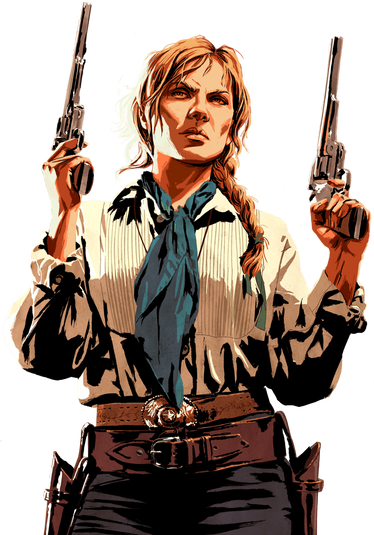 travelling all over and taking on jobs nobody else does because she's no longer afraid to die. But despite everything she endures, she's still a fundamentally kind person. She and Arthur have a genuine respect for each other that's evident in almost every interaction post-chapter 5, and when his health is clearly failing and he's pushed to the breaking point, she's there to pick up the slack. Her fondness and compassion for the people close to her juxtaposed with the traumatized fury she fosters make her such a stunningly compelling character.
travelling all over and taking on jobs nobody else does because she's no longer afraid to die. But despite everything she endures, she's still a fundamentally kind person. She and Arthur have a genuine respect for each other that's evident in almost every interaction post-chapter 5, and when his health is clearly failing and he's pushed to the breaking point, she's there to pick up the slack. Her fondness and compassion for the people close to her juxtaposed with the traumatized fury she fosters make her such a stunningly compelling character.
I'm really not one to ask for sequels or spinoffs, but there's so much to Sadie as a character that she really really deserves a spotlight in another title. In my first playthrough I thought she was going to be the secondary protagonist (taking the place of John) and I was kinda disappointed when that didn't happen. Sadie DLC please. Please rockstar. Sadie DLC. I'm begging you.
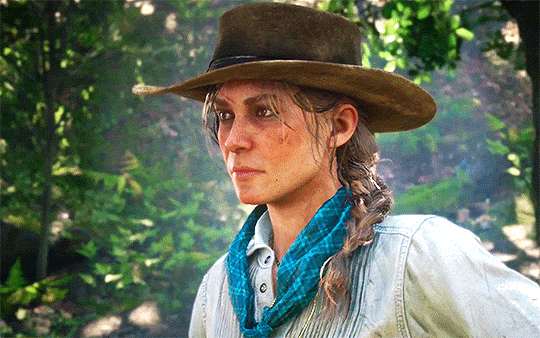 Thinkin' up a storm
Thinkin' up a storm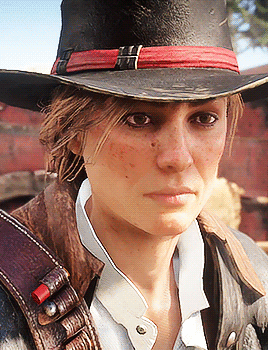 Talking over the plan
Talking over the plan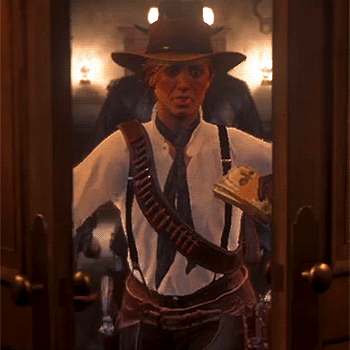 Swagger(tm)
Swagger(tm)Charles Smith
Charles Smith, played by Noshir Dalal, is a member of the Van der Linde gang introduced in a hunting mission with Arthur in chapter 1. He's a soft-spoken character who clearly values silence, but the entirety of his time spent with Arthur, he talks about his past, his connections with his native mother and his black father, and his values, and he seems to take genuine interest in what Arthur has to say. Arthur seems to be one of the few members of the gang he really opens up to, and Arthur repeatedly reciprocates. Although his character arc is given less development and spotlight compared to the main characters', he goes through the downfall of the gang just the same as they do. After chapter 4, he helps the weaker gang members, spends significant time helping the the Wapiti tribe, and lends Arthur extra help whenever it's needed. He shaves the sides of his head in a show of grief when he gets news that Arthur is likely dead, but when they reunite after chapter 5, they share a hug in a touching display of affection. His kindness is always evident, despite his quiet and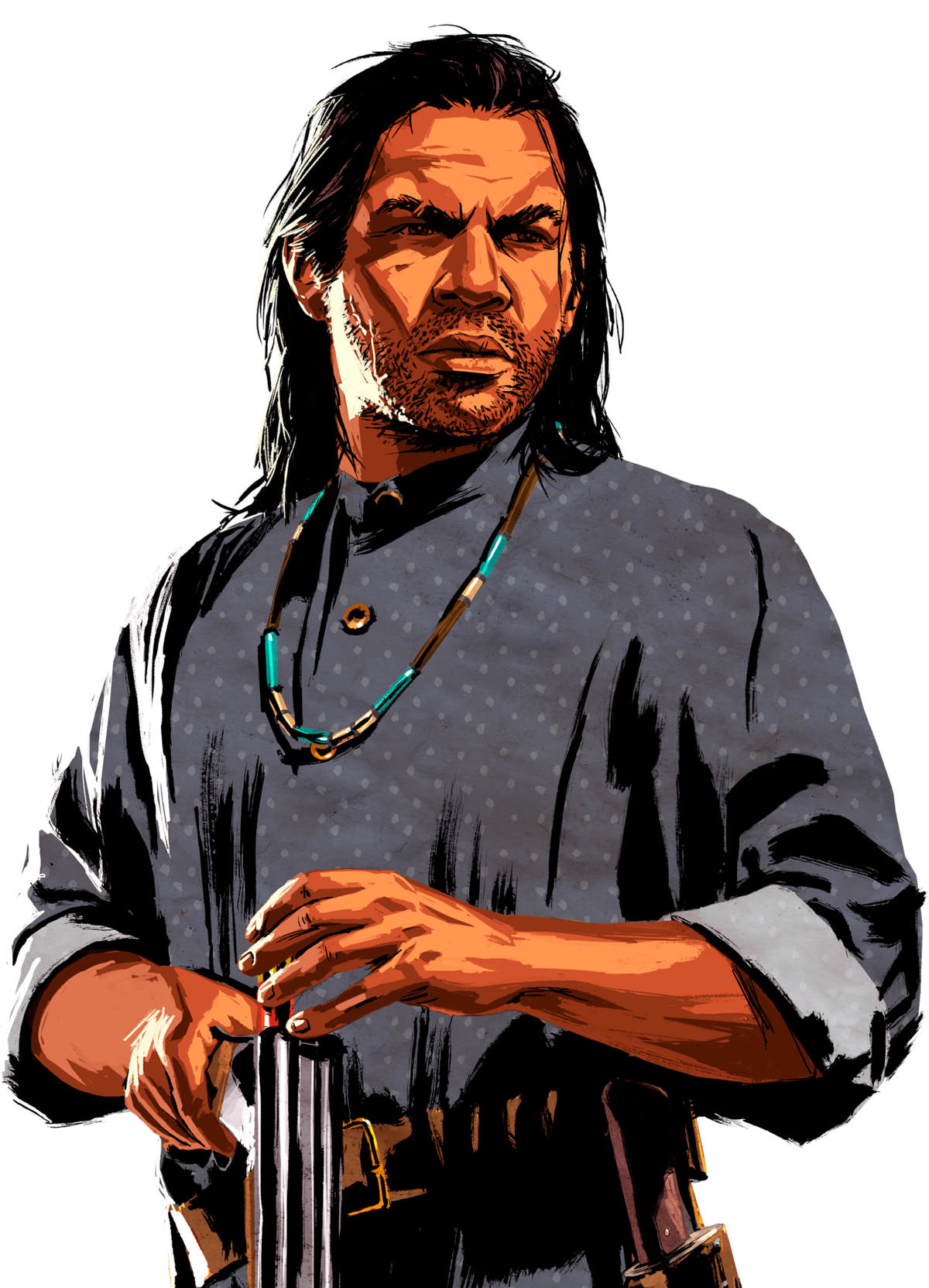 purposefully intimidating demeanor. He's a character that's young, but has lived such a harsh life that he's made to feel like he was only put on the earth to hurt others, and to suffer himself. His friendship with Arthur and his comraderie with Sadie and John are really the core of his character, someone whose moral compass is unwavering, and whose bonds of friendship are unbreakable.
purposefully intimidating demeanor. He's a character that's young, but has lived such a harsh life that he's made to feel like he was only put on the earth to hurt others, and to suffer himself. His friendship with Arthur and his comraderie with Sadie and John are really the core of his character, someone whose moral compass is unwavering, and whose bonds of friendship are unbreakable.
There is definitely something to be said about the "strong stoic native character" archetype in fiction, but the writing in this game rounds Charles out from a stereotype into a believable person who's spent his life in solitude and fosters his only connections to his mother and her culture in any way he can. I really do wish we'd gotten to know Charles more, given how he's a paragon of strength that Arthur leans on & vice versa. His surviving to the epilogue and meeting John feel so good after seeing the strife that Charles suffered in chapter 6. We never get to find out, but I hope his story ends happily whever he winds up.
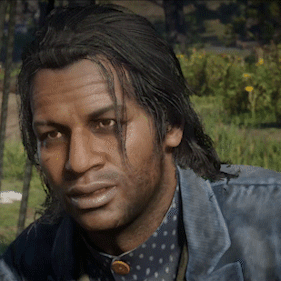 "The greatest of gifts"
"The greatest of gifts"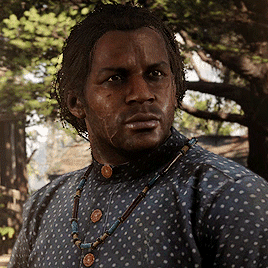 Charles hearing some bullshit
Charles hearing some bullshit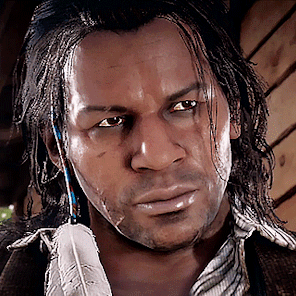 Talking w Sadie and John
Talking w Sadie and JohnWhy do I love it?
Red Dead Redemption 2 came out around the time a few of my other special interests were fading (rip my old ocs). My older brother came over during the holidays and brought his PS4 with a brand-spankin' new copy of rdr2 in 2018, and from the moment I saw the chapter 1 gameplay I knew this game was something special. The snow graphics were something I was absolutely blown away by; until that point, the most interactive environmental effects in a video game I'd ever seen was leaving footprints in the sand in pokemon (I'm not much of a gamer, sue me). And the HORSES? The obvious care and meticulous attention to detail that'd gone into motion capturing every feasible walk, trot, canter, gallop, and run? Their idle animations even?? And the fact that you can watch the muscles of their haunches and shoulders bunch with each step, and that mud and dust will accumulate on their legs according to where you've been riding, and the whites of their eyes showing when they're scared? Oh my god. This game knew how much of a lynchpin the horses would be for the wild west setting, and saying they knocked it out of the park is the understatement of the century. I was half paying attention to the cutscenes when my brother introduced this game, but when I saw those gorgeously rendered horses galloping through snow that moved like actual knee-deep snow? I was fuckin' hooked. I would've bought the game if it had stayed in the mountains for the whole runtime. (But it didn't!) So I bought it and it took me a month and a half to finish my first playthrough. Took me another two years to get a 100% playthrough. I'm still playing it and discovering something new each time!I honestly wish I could go back and play this game for the first time again. It's like nothing I've ever experienced; the drama, the atmosphere, the... Well, I've already gushed about it enough on this page. More personally, it got me through my early twenties with a nice community of similarly obsessed people on twitter/tumblr/discord. It propelled me straight into my interests in the fields of botany and ecology, reignited my love for country and blues, hastened my coming out of the closet, and has improved my ability to draw and paint tenfold. The game inspires me endlessly, and even though I'm not active in the rdr2 fandom anymore, my memories of the communities are fond and a little ridiculous.
Why do I love it so much? Why do I keep playing story mode seven years on? I think something about the way you can choose to play it at your own pace is a big factor. I'm not shy about the fact that I take things slow. I like to let a story sink in, I like to linger in places and really get to know them. Red Dead Redemption 2 is a game that rewards you for that immensely. It gives you the option (coerces you) to sit still for a while; watch the birds, watch the trees sway in the wind, go fishing. It encourages you to fall in love with the world around you, to look closer, to feel deeper. It's a story about change and loss, yes, but it's also a story about living in the moment. More often than not, it encourages me to get off my ass and go outside to see the real life world around me, just like in the game. The fact that this video game manages to capture the same feeling as going outside is a titanic feat. I guess that's PART of why I love the game so much.
Cinematic Parallels
Who the Hell is Leviticus Cornwall? mission ref. Butch Cassidy and the Sundance Kid (1969)Blessed are the Meek? mission ref. Death Rides a Horse (1967)
() mission ref. The Assassination of Jesse James by the Coward Robert Ford (2007)
Dead guy under a bear with the antler knife ref. The Revenant (2015)
Nosferatu in Saint Denis ref. Nosferatu (1922)
Blood Feuds, Ancient and Modern mission ref. Django Unchained (2012)
KKK banter ref. Django Unchained (2012)
Screen Rant with some good commentary on rdr2's tonal references to hollywood westerns here
IGN mission list for reference here
(wip)
Fandom
(wip)TO ADD:
- plant rating document
- fanart showcase
- botany
- wildlife

